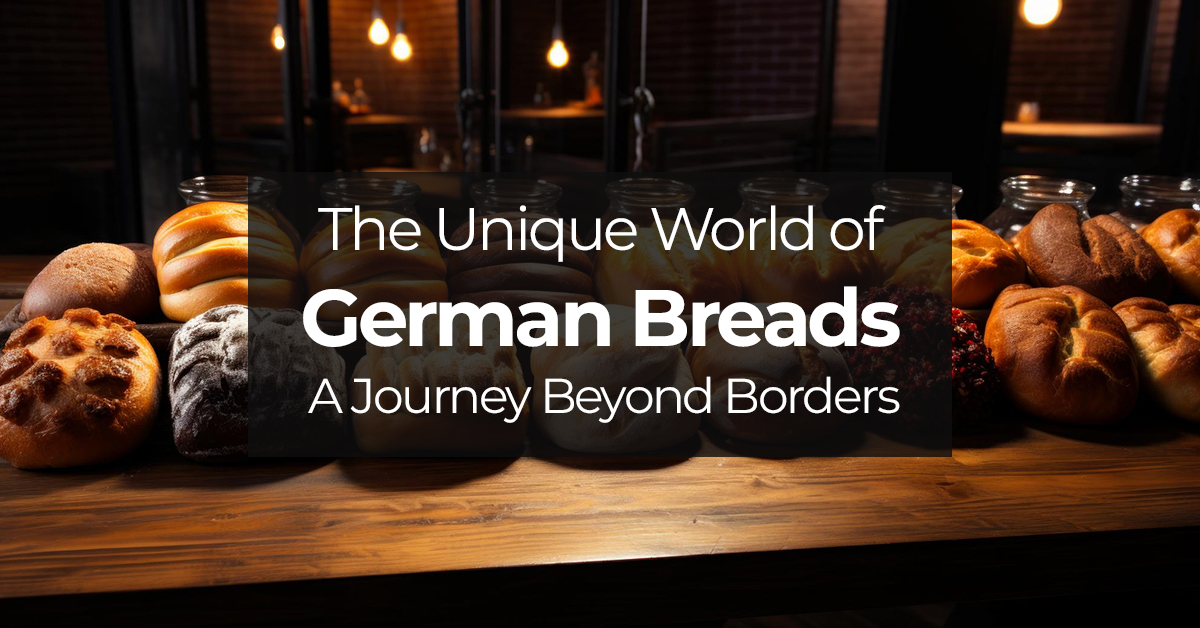In the realm of gastronomy, few things evoke as much passion and tradition as bread. While bread is a staple in many cultures around the world, German bread stands out as a unique and cherished culinary treasure. From its diverse textures and flavors to its rich history and cultural significance, German breads offer a fascinating glimpse into the country’s culinary heritage. In this exploration by ZeroIn Academy, the best baking institute in Chennai, we delve into what sets German bread apart from the rest of the world.
A Rich Culinary Heritage:
German bread culture is deeply rooted in centuries-old traditions, shaped by geography, climate, and cultural influences. The country’s rich agricultural landscape, abundant wheat fields, and rye cultivation have played pivotal roles in shaping its bread-making traditions.
One of the defining features of German bread is its incredible diversity. With over 300 varieties of bread and over 1,200 types of rolls and pastries, German bakeries offer an unparalleled selection that caters to every taste and occasion. From hearty rye breads to delicate pretzels, each region boasts its own specialties, reflecting local ingredients and culinary customs.
The Secret Ingredient: Rye Flour:
While wheat flour is the primary ingredient in many breads worldwide, rye flour takes center stage in German bread-making. Rye, a hardy grain well-suited to the country’s climate, imparts a distinctive flavor and texture to German breads. With our professional bakery courses in Chennai, know more about Dark rye breads, known as “Schwarzbrot,” are a staple in many German households, prized for their dense crumb and robust flavor.
Rye flour’s unique properties, including its high fiber content and ability to retain moisture, result in breads that stay fresh longer than those made with wheat flour alone. This longevity has made rye bread a practical choice for generations of Germans, who value quality and sustainability in their food.
A World of Flavors and Textures:
From dense, chewy loaves to light, airy rolls, German breads offer a diverse range of textures to suit every palate. Whole-grain breads packed with seeds and grains provide a hearty, satisfying bite, while soft, fluffy rolls make the perfect sides to soups and salads.
German breads are also renowned for their bold flavors, thanks to the creative use of ingredients such as nuts, seeds, herbs, and spices. Whether it’s a fragrant aniseed loaf from the Bavarian Alps or a tangy sourdough from the Rhineland, each bread tells a story of regional terroir and culinary craftsmanship.
Craftsmanship and Tradition:
At the heart of German bread culture lies a deep appreciation for craftsmanship and tradition. Many German bakeries still adhere to time-honored techniques passed down through generations, ensuring the highest quality and consistency in their products.
The art of bread-making is a revered profession in Germany, with bakers undergoing rigorous training to master the craft. From mixing and shaping the dough to baking and finishing, every step is taken with precision and care, resulting in breads that are as beautiful as they are delicious.
Beyond the Bakery: Bread in German Culture:
In Germany, bread is more than just a source of sustenance; it’s a cultural icon with deep symbolic meaning. From religious rituals to social customs, bread plays a central role in German life, serving as a symbol of hospitality, abundance, and community.
One of the most beloved German traditions is the Sunday morning breakfast, known as “Frühstück.” Families gather around the table to enjoy an array of freshly baked breads, cheeses, cold cuts, and preserves, savoring the simple pleasures of good food and good company.
Bread also holds special significance in religious ceremonies and festivals throughout the year. From the Easter breads of spring to the festive Stollen of Christmas, each season brings its own array of breads imbued with tradition and symbolism.
Looking Ahead: Preserving and Celebrating German Bread Culture:
As the world becomes increasingly interconnected, preserving and celebrating traditional foodways like German bread-making is more important than ever. While modernization and globalization pose challenges to traditional crafts, they also present opportunities for innovation and collaboration.
In recent years, there has been a resurgence of interest in artisanal baking and heritage grains, fueled by a growing appreciation for local, sustainable food systems. Cake baking classes in Velachery supports small-scale producers and championing traditional techniques, so we can ensure that bread culture continues to thrive for generations to come.
Conclusion:
German breads stand as a testament to the rich tapestry of culinary heritage woven throughout the country’s history. From the earthy flavors of dark rye to the delicate crumb of a buttery brioche, each loaf tells a story of tradition, craftsmanship, and community. As we continue to explore the world of German breads, let us savor not only the flavors and textures but also the deep-rooted cultural significance that makes them truly special.



